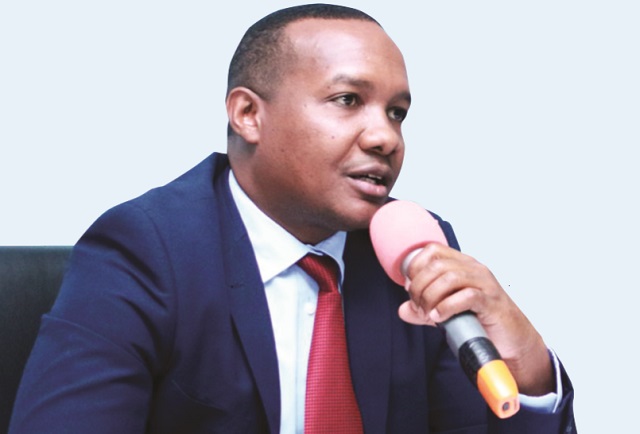
Paul Bwiso is the chief executive officer of Uganda Securities Exchange. He spoke to The Independent’s ISAAC KHISA.
How has been the performance of stock market in the past eight months ending August compared with the same period in 2016?
We are down by about 50% to Shs69bn as turnover compared with Shs123bn recorded in the eight months to August 2016.This is because of investor flight. We have seen investors most especially foreign, reduce their investment on the market while locals, who are mainly funds, holding on their shares. What is interesting is that with the interest rates coming down, we would have expected more investors coming on the stock exchange but that has not been the case. This means that investors are looking at the economy as not being strong enough to drive growth in the companies to report better profits to offset investing in government bonds. Most of the counters have experienced either a flat or drop in prices showing that there’s no sufficient demand to buy or the activity in the economy to drive these businesses is low. On the other hand, banks have performed well but most investors know it is cyclical. It is as a result of high interest rates last year that ultimately resulted into the better performance. And so the interim or the medium term investors are not guaranteed of returns. As a consequence, most investors are taking the approach of ‘wait and see or hold.’
Based on that performance, what is the outlook for this year’s market performance?
I think over the next coming months, we wouldn’t expect a large increment. We would probably have a drop in the overall turnover, year-on-year, estimated a 20-30%. We still expect that once Umeme (electricity distributor) provides its performance and all companies submit their half year results, we would see activities resume. The periods between October and December are normally active. The Dfcu rights issue should also bring some activities on the Dfcu counter that has been decimal. One of the things we had anticipated at the beginning of the year was more companies using the stock market to rise more capital but that has not been the case. Most of them are in the pipeline and again, they are still working on improving their governance structures to be able to come to the market.
It is nearly four years since you last had a listing. Why are there no new listings anymore?
I would say there are bigger issues. When a company is coming to the market, there are a lot of things that need to be put in place. It needs to have a pre-IPO preparation. Also, there are whole lots of regulations that a company needs to follow because it will be dealing with public funds.
In addition, the company owners need to ensure that they are better prepared and have good structures. Now, a lot of these take a shareholder and board of director’s decision, who in many times tend to change their minds.
We also have competition from private equity funds, who tend to give loans to the companies within three to six months in exchange for shares. But coming to the stock market takes probably longer because one need to come when they are well prepared.
To make the situation even worse, good companies are already owned by international firms which are listed on other markets. We have received two applications to list on the stock market but application is one thing and meeting the criteria is another.
Given that share prices on the counters has either dropped or remained flat, what does that mean to prospective investors?
The share prices have been like that since last year and it has been the right time for one to invest on the stock market. The share prices have been down, banks have been performing well and therefore one would expect them to pay better dividends. We have seen companies like Uganda Clays Limited report profits and paid dividend for the first time after many years. Looking at that, it is good time to buy shares on the stock market but it is also good for one take advice from an investment advisor to be able to get the best deal because the performance of the economy tend to impact different companies differently.
How far has the Kenyan election impacted on the Uganda Securities Exchange?
The impact of Kenya’s election on USE actually started in 2016. Usually, investors tend to pull out their money on the stock market a year before the general election. On the other hand, it has been the best time to buy shares on the Kenyan market because stocks were as low as 40-50% down in prices.
 The Independent Uganda: You get the Truth we Pay the Price
The Independent Uganda: You get the Truth we Pay the Price



This is the first time, I am reading your post and admire that you posted an article which gives users lot of information regarding particular.